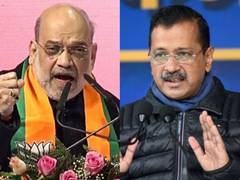SCO asserts inadmissibility states using terrorist groups to advance geopolitical goals
New Delhi, Jul 4 (PTI) The top leaders of the Shanghai Cooperation Organisation (SCO) on Tuesday described as “criminal and unjustifiable” any act of terrorism and asserted the “inadmissibility” of states using terrorist and extremist groups as part of achieving political and geopolitical goals.
The SCO states, subject to their national laws, also agreed to develop common principles and approaches to form a unified list of terrorist, separatist and extremist organisations whose activities are prohibited on the territories of the member nations of the grouping.
At the end of an India-hosted virtual summit of the SCO, the leaders of the grouping came out with a statement on countering radicalisation saying it leads to terrorism, separatism and extremism.
The summit, chaired by Prime Minister Narendra Modi, was joined by Chinese President Xi Jinping, his Russian counterpart Vladimir Putin, Pakistan Prime Minister Shehbaz Sharif and other leaders of the grouping.
In his address, Modi said the SCO must not hesitate to criticise countries supporting cross-border terrorism as an instrument of state policy and there must not be any “double standards” in combating terrorist activities.
The leaders also reaffirming their commitment to the “principles of sovereignty, territorial integrity, non-interference in internal affairs and other provisions of the SCO Charter”.
Separately, the ‘New Delhi Declaration’ on the summit said the leaders the SCO member states are determined to continue taking active measures to eliminate the conditions conducive to the spread of terrorism.
“Subject to their national laws and on the basis of consensus, the member states will seek to develop common principles and approaches to form a unified list of terrorist, separatist and extremist organizations whose activities are prohibited on the territories of the SCO member states,” it said.
The member states will also take action to disrupt the terror financing channels, suppress recruitment activities and cross-border movement of terrorists, eliminate “sleeper cells” and places used as terrorist safe havens, the declaration added.
“The member states note the inadmissibility of interference in the internal affairs of states under the pretext of countering terrorism and extremism, as well as unacceptability of using terrorist, extremist and radical groups for mercenary goals,” it said.
The statement on radicalisation said the leaders vowed to enhance cooperation in dealing with radicalisation as the spread of radical ideologies by terrorist groups and their sponsors, including on the Internet, have a negative impact on the minds of young people.
It said the member States, while strongly condemning terrorism in all its forms “committed by whomever, wherever and for whatever purpose”, stressed that terrorism should not be associated with any religion, civilisation, nationality or ethnic group.
“The member states will further develop cooperation in countering radicalisation that leads to terrorism, separatism and extremism, including by sharing experiences and best practices, in accordance with the SCO Charter,” it said.
The statement said the member states intend to make joint efforts to block and remove radical and terrorist content from the Internet and initiated necessary measures against identified individuals and entities in accordance with the domestic laws.
“The member States will continue to cooperate in countering radical ideology and propaganda by promoting ideas of peaceful coexistence of states, respect for religious and cultural diversity, social cohesion and dialogue among civilizations,” it said.
According to the New Delhi Declaration, the member states have expressed their concern about the growing threats posed by increased production, trafficking and abuse of narcotic drugs and using the proceeds of it illicit drug-trafficking as a source of funding for terrorism.
They stressed the need for a joint and balanced approach to countering trafficking of illicit drugs and their precursors, and noted the importance of implementing the international drug control conventions and other relevant legal regulatory instruments, it said.
The SCO leaders also issued a separate statement on cooperation in digital transformation.






